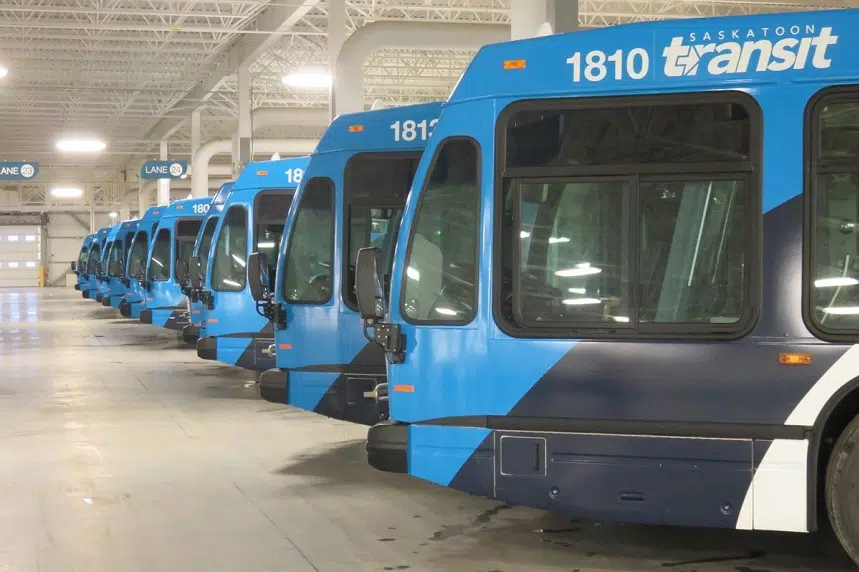Did Saskatoon city transit managers knowingly mislead city councillors on the reasons for so many transit service disruptions last winter?
Those were some of the questions asked at Monday’s transportation committee meeting.
During the meeting, city auditor Sohail Saleem presented the findings of a report city council asked him to provide regarding the multitude of service and route disruptions, between December of 2021 and March of this year. Days after the audit was ordered, the transit department made a staffing change.
The findings showed “The Administration provided several reasons for service disruption during the winter of 2021-2022. These include cold weather conditions, the global shortage of parts due to COVID and the age of the fleet.
“During the investigation, we did not find compelling evidence that support the primary reasons provided by the Administration for the disruption of service.”
At a Feb. 28 council meeting, transportation and construction GM Terry Schmidt and transit director Jim McDonald were asked about the reasons behind the difficulties keeping buses on the road. Their answer: Supply chain issues for bus parts that had been building up during the pandemic, service adjustments, and a prolonged cold spell.
Coun. Randy Donauer asked Saleem whether delivering that incorrect information was done on purpose.
“Sorry, but I have to ask this question. Did you find any evidence that the administration intentionally misled either committee or council regarding the service disruptions — and the key word there is ‘intentionally’? ” he emphasized.
Saleem told Donauer the report was evidence-based.
“We did a thorough review of documents and records during the investigation. And based on the review of our documents, we did not find evidence that would indicate that there was a deliberate act to mislead the council,” he said. “However, we did conclude that those transit issues were not well understood.”
Saleem said the issues were not analyzed in detail, and the reasons provided regarding service disruptions were inaccurate.
Donauer pressed Saleem and asked whether transit managers could reasonably have been expected to accurately know why there were so many service issues.
“I would say that … this issue should have been discussed in detail before providing it to the public,” said Saleem.
Coun. David Kirton told the committee when the supply chain issue and fleet issues were announced, he started getting messages immediately that it was not true from people working in the transit department.
“When you had conversations with the workers in transit and you talked about that very issue, were they shaking their heads and telling you, ‘Yes, we knew that all the time … that this was not the issue?’ ” he asked Saleem.
Saleem told Kirton workers confirmed internal factors, rather than external factors that were the problems. Kirton said the workers who spoke with him didn’t feel comfortable addressing their managers.
“Are we closer to them feeling more comfortable to be able to speak up?” he asked.
There has been what Saleem called a “start in the right direction.”
Saleem outlined six recommendations in his report, including that the corporate supply chain and Saskatoon Transit work together to strengthen the stores operations, strengthening governance processes within Transit, a better reporting process for service disruptions, improving the preventative maintenance program, analyzing and reviewing its information before making public announcements, and implementing a workplace culture audit to improve workplace culture.
Transit for its part says it’s working on implementing the recommendations, and will also ask for money in the 2023 budget to hire four additional managers/supervisors.











